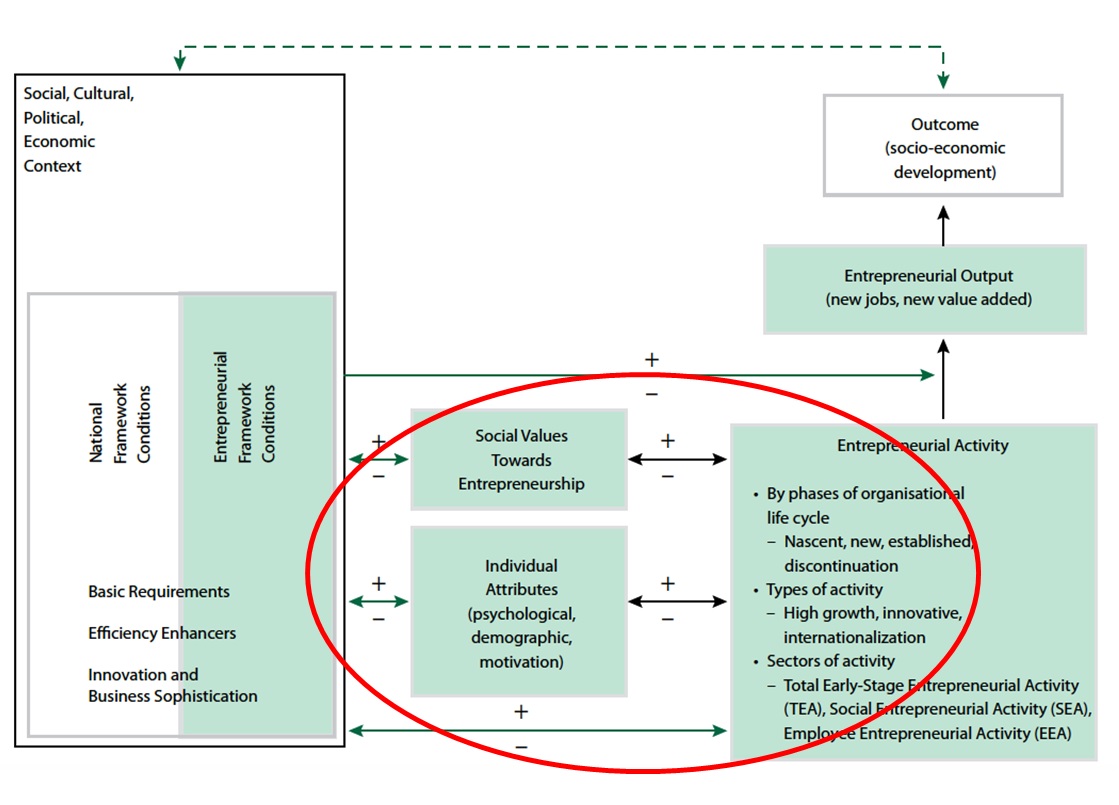
Source: GEM 2015/2016 Global Report
In the revised GEM conceptual framework shown above, this "black box" has been opened further in order to test the characteristics of the assumed relationships between social values, personal attributes and various forms of entrepreneurial activity.
The components are as follows:
Social, Cultural, Political and Economic Context: This is defined by using the World Economic Forum’s twelve pillars for profiling economic development phases when surveying competitiveness and nine components of the GEM National Entrepreneurial Conditions. It is important to emphasize that those components may be dispersed in different combinations in different economies, but the levels of economic development are determined by the dominant presence of the identified group of pillars.
It should be noted that all components of the environment in which women and men act with an entrepreneurial mindset (or cannot act proactively and innovatively) are mutually dependent. This dependence demands a holistic approach not only in research but also in designing appropriate policies to build a supportive environment in which people can adopt an entrepreneurial behavior.
Social Values towards Entrepreneurship: including how society values entrepreneurship as a good career choice; if entrepreneurs have a high social status; and how media attention to entrepreneurship is contributing (or not) to the development of a national entrepreneurial culture.
Individual Attributes: including several demographic factors (gender, age, geographic location), psychological factors (perceived capabilities, perceived opportunities, fear of failure) and motivational aspects (necessity-based vs. opportunity-based venturing, improvement-driven venturing, etc.).
Entrepreneurial Activity: defined according to the ventures’ life cycle phases (nascent, new venture, established venture, discontinuation), the types of activity (high growth, innovation, internationalization) and the sector of the activity (Total Early-stage Entrepreneurial Activity—TEA, Social Entrepreneurial Activity—SEA, Employee Entrepreneurial Activity—EEA).
In all conceptual frameworks, the basic assumptions have remained unchanged:
- Entrepreneurial activity is not a heroic act of an individual, regardless of the environment in which the activity is performed;
- Entrepreneurial activity is an output of the interaction of an individual’s perception of an opportunity and capacity (motivation and skills) to act upon this AND the distinct conditions of the respective environment in which the individual is located.
